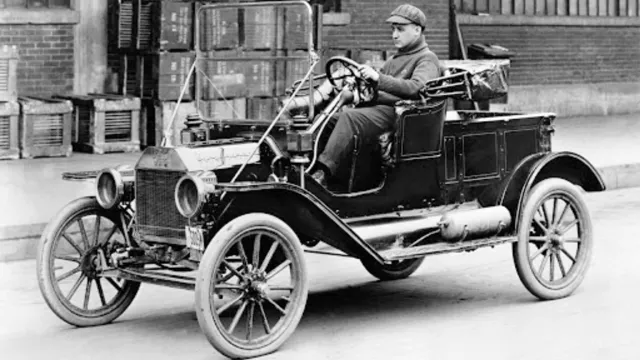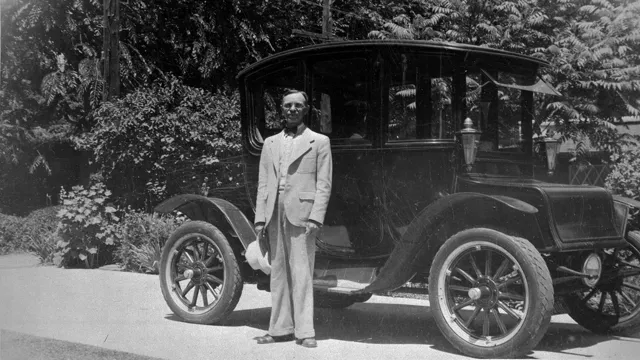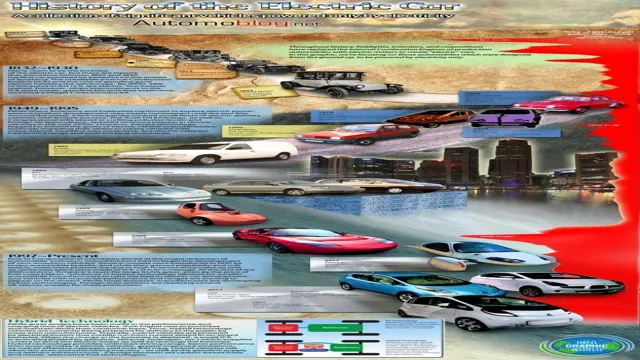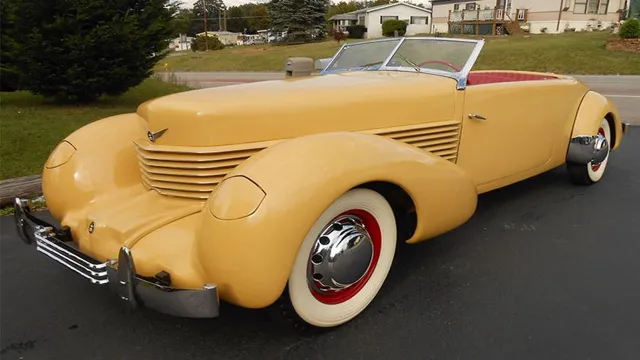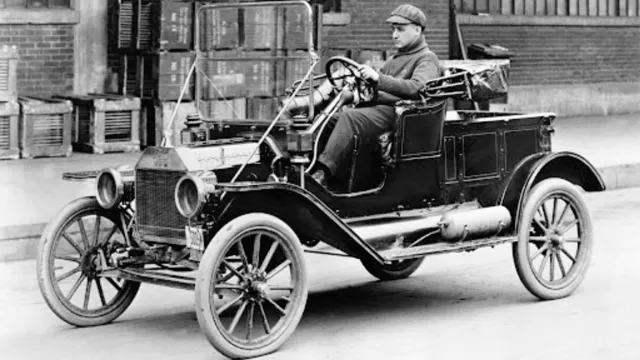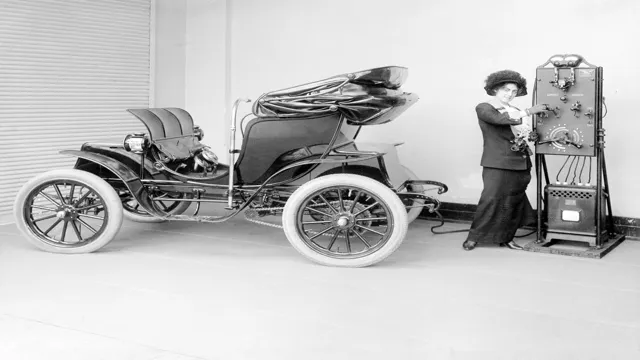Revving Through Time: The Fascinating History of Modern Electric Cars
Have you ever wondered how electric cars evolved into the eco-friendly and technologically advanced machines we see on the roads today? The history of modern electric cars is a tale of innovation, perseverance, and environmental consciousness. From humble beginnings in the early 19th century to the present day, the evolution of electric vehicles has been nothing short of remarkable. As we continue to embrace cleaner and more sustainable modes of transportation, let’s take a closer look at the fascinating journey that led to the development of modern electric cars.
Get ready to take a trip back in time as we uncover the pivotal moments, notable inventors, and groundbreaking discoveries that shaped the history of electric cars.
Early Electric Cars
The history of modern electric cars dates back to the early years of the automobile industry. In fact, the first electric cars were introduced in the late 1800s, prior to the development of gasoline-powered vehicles. These early electric cars were popular among wealthy urban residents due to their low noise levels and lack of harmful emissions.
However, the limited range of these vehicles, which were powered by lead-acid batteries, made them less practical for long-distance travel. With the discovery of oil reserves and the development of gasoline cars, electric vehicles became less popular. But in recent years, the concerns about climate change and increasing fuel prices have led to renewed interest in electric cars.
With advancements in technology, modern electric vehicles can travel hundreds of miles on a single charge and offer a sustainable alternative to traditional gasoline cars. Today, major car manufacturers produce electric vehicles alongside traditional gasoline-powered vehicles, and the future looks bright for the evolution of modern electric car history.
Invention of Electric Vehicle
Electric Vehicle Electric cars aren’t a new phenomenon, in fact, they were some of the earliest types of automobiles ever made. The first electric car was invented back in the 1830s, a far cry from the high-tech electric vehicles we see on the roads today. These early electric cars were a popular choice among elite families who wished to avoid the noise and pollution produced by gasoline-powered cars.
However, they weren’t without their drawbacks; with a range of only about 30 miles, they were unsuitable for long-distance travel. Additionally, their batteries were heavy and cumbersome, which made them impractical and expensive. It wasn’t until the late 1800s that gas-powered cars gained popularity, and electric cars fell out of favor.
But with the introduction of better batteries and a growing concern for the environment, electric cars are once again taking center stage.
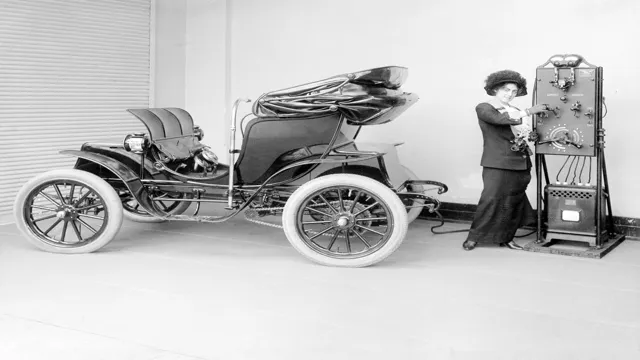
First Electric Car in the U.S
Early Electric Cars Did you know that the first electric car in the United States was built in the late 1800s? It may be surprising to think that electric vehicles have been around for so long, but their history in the U.S. dates back nearly a century.
Although gas-powered cars quickly became dominant, early electric cars had many advantages, such as being quiet, easy to start, and having no emissions. In fact, early electric cars were especially popular with women, as they were viewed as cleaner and easier to operate than their gas-powered counterparts. However, the high cost of batteries and limited driving range ultimately led to the decline of electric cars in the early 1900s, and it wasn’t until recently that electric vehicles regained popularity.
Today, with advancements in battery technology and a growing interest in sustainable transportation, the future looks bright for the electric car industry.
The Rise of Hybrid Cars
Modern electric car history saw significant changes with the rise of hybrid cars in the automotive industry. Invented in the late 1990s, hybrid cars are becoming increasingly popular due to their eco-friendly nature and affordability. They utilize both gasoline and electric power to run, with the electric power kicking in during idle time or when cruising at low speeds.
This combination significantly improves fuel efficiency and reduces pollution levels. Although initially considered a niche product, major automobile manufacturers started investing in hybrids in the early 2000s, which led to an explosion in the market. Presently, hybrid cars are quite popular across the world, and their technology continues to advance with each passing year.
The future seems bright for electric cars, and hybrids play a significant role in paving the way for cleaner, greener transportation.
Toyota Prius and Honda Insight
Hybrid Cars Hybrid cars have become increasingly popular over the years due to their great fuel efficiency, as they use both gasoline and electricity to power their engines. The Toyota Prius and Honda Insight are two of the most popular hybrid vehicles on the market today. The Prius was the first hybrid car introduced to consumers back in 1997 and has since been a top-performing vehicle in its class.
The Insight, on the other hand, was released in 1999 as a direct competitor to the Prius. Both cars utilize advanced technology to optimize fuel consumption and reduce emissions. In addition to being environmentally conscious, hybrid cars also offer a smooth and quiet driving experience.
With the rising cost of gas and the push towards reducing carbon emissions, it’s no surprise that hybrid cars have risen to the top of the automotive industry.
Advantages of Hybrid Cars
Hybrid cars are gaining increasing popularity as people become more environmentally conscious and seek ways to reduce their carbon footprint. These cars utilize both a gasoline engine and an electric motor to propel the vehicle, resulting in lower emissions and higher fuel efficiency. They are also known for their quiet ride and smooth handling.
Hybrid cars have come a long way since their introduction, with more models available and improved battery technology. The advantages of owning a hybrid car are numerous, including reduced fuel costs, tax incentives, and a potential boost in resale value. Plus, with many major car manufacturers now offering hybrid options, there’s never been a better time to consider making the switch.
So, why not join the hybrid movement today and do your part for the environment while enjoying the benefits of a high-tech, efficient vehicle?
Impact on Environment and Economy
Hybrid cars have been gaining popularity over the years due to their positive impact on both the environment and economy. These vehicles are designed to run on both electricity and gasoline, making them an ideal choice for those who are looking for a more eco-friendly option. Hybrid cars are equipped with special technologies that allow them to reduce emissions and use less fuel, which helps to minimize our carbon footprint.
Apart from being environmentally friendly, hybrid cars are also cost-effective in the long run. They require less maintenance and fuel, which means that their owners can save more money over time. Additionally, hybrid cars are often more reliable and have a longer lifespan than traditional cars.
With the rise of hybrid cars, we can expect to see a positive impact on our planet and our wallets. So why not consider making the switch today?
Electric Cars Take the Main Stage
Modern electric car history dates back to the 1800s when inventors first thought of replacing gasoline-powered engines with electric motors. However, it wasn’t until the early 2000s that electric cars regained interest with the release of the Toyota Prius, which incorporated a hybrid electric powertrain. Since then, electric car technology has rapidly advanced, leading to the introduction of fully electric cars like the Tesla Model S, Nissan Leaf, and Chevy Bolt.
These modern electric cars are more efficient, eco-friendly, and cost-effective than ever before. With a growing concern for the environment and a desire for sustainable transportation, electric cars are now taking the main stage in the automotive industry. As more and more automakers are investing in and developing electric cars, the future of transportation looks electrifyingly bright.
Tesla Motors and Roadster
Electric cars have now become a major player in the automobile industry, and Tesla Motors is at the forefront of this revolution. The Tesla Roadster, the company’s first production car, is an all-electric sports car that changed the game for the industry. Instead of relying on gasoline, the Roadster runs on lithium-ion batteries, which can travel up to 245 miles on a single charge.
The Roadster’s impressive performance and environmental benefits have helped to pave the way for the electric car movement. Tesla has since gone on to produce a line of high-performance, all-electric vehicles, including the Model S, Model X, and Model 3, which have all gained significant popularity. As more and more consumers look to reduce their carbon footprint and maximize efficiency, it’s clear that electric cars like those made by Tesla will continue to be a major player in the automotive industry.
Tesla Model S and Model X
Electric Cars Electric cars have come a long way since they were introduced to the market. The Tesla Model S and Model X have paved the way for the next generation of electric cars. These cars are not only energy efficient but also have sporty and sleek designs, making them attractive to consumers.
Electric cars are becoming more mainstream and have captured the attention of car enthusiasts worldwide. With the advancement of technology, cars like these can travel longer distances, have faster charging times, and have more features than ever before. We are witnessing a shift in the automotive industry and are seeing a surge in the production of electric cars.
The question is, will electric cars eventually replace gasoline cars? Only time will tell. However, with the increasing awareness of climate change and the need for sustainable living, it is apparent that electric cars are here to stay.
Electric Car Market Today and Future
The history of modern electric cars dates back to the late 1800s, where early predecessors to today’s vehicles first hit the roads. However, it wasn’t until the 1990s that electric cars became commercially available, even though their popularity was largely overshadowed by gasoline-powered cars. Fast forward to the present, and electric cars have taken the automotive industry by storm, with rapid advancements in technology and increasing demand for sustainable transportation.
With the rise of Tesla and other electric car manufacturers, it’s clear that the electric car market is here to stay. In fact, analysts predict that by 2040, electric cars could make up close to 60% of all passenger vehicle sales worldwide. As more people become environmentally conscious, it’s no surprise that electric cars are quickly becoming the vehicle of choice for those who want to do their part in reducing their carbon footprint.
The future of the electric car market looks bright, with continued technological advancements promising improved battery life, faster charging times, and increased affordability.
Conclusion
As we close the chapter on modern electric car history, it’s clear that our love affair with fossil-fueled vehicles has come to an end. With the rise of electric cars, we’re witnessing a technological revolution that promises to reshape our transportation landscape. Not only are electric cars better for the environment, but they’re faster, quieter, and more stylish than ever before.
From Teslas to Nissans, the options for electric cars are endless, proving that we don’t have to compromise our love for cars to be environmentally conscious. So let’s raise a glass (of electric charge) to the future of transportation, where sleek and sustainable electric cars reign supreme.”
FAQs
What is the history of modern electric cars?
The history of modern electric cars dates back to the creation of the first rechargeable battery in the early 1800s. However, it wasn’t until the 1990s that electric cars became more widely available to consumers.
What advances have been made in modern electric car technology?
Advances in modern electric car technology include improvements in battery technology, enabling longer driving ranges, and faster charging. Additionally, the use of regenerative braking allows electric cars to recapture energy while driving.
How do electric cars compare to traditional gasoline cars in terms of environmental impact?
Electric cars have the potential to be much more environmentally friendly than gasoline cars, as they emit zero tailpipe emissions. However, the environmental impact of electric cars can vary depending on the source of the electricity used to charge them.
What are some of the challenges facing the widespread adoption of electric cars?
Challenges facing electric car adoption include limited range, higher costs compared to gasoline cars, and infrastructure challenges, such as a lack of public charging stations.
